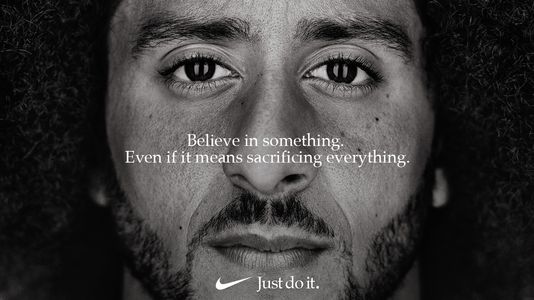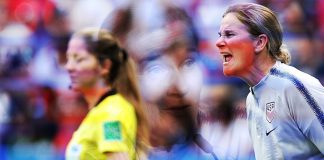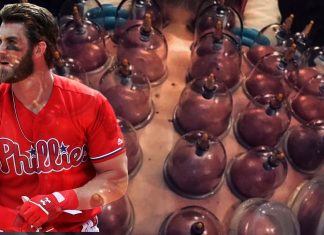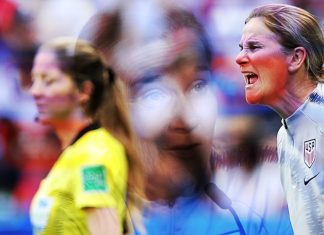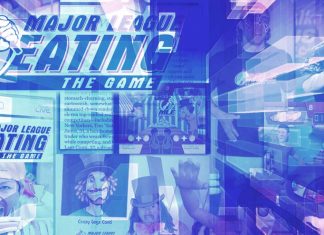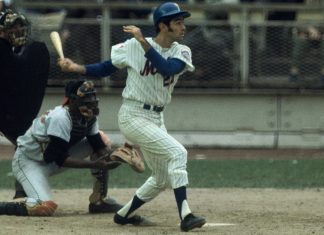It’s a story as old as time and as predictable as it is sad, especially in soccer. Consistently, non-white players have faced discriminatory and sometimes violent treatment from fans. This often includes making monkey noises, or sometimes even throwing a banana at a player if the racist du jour is close enough to the sidelines.
Racism recently reared its ugly head again, predictably enough. This time in Montenegro during England’s outright demolition of their National Team when fans racially abused England players. And again in Italy, where Moise Kean faced racial abuse the entire game, but was the last man laughing after scoring the game-winning goal and enjoying a delightful celebration. Listening to the players talk about this, racism isn’t a new phenomenon in soccer, but the ruling bodies (local league associations, UEFA, FIFA, etc.) are also neither quick nor effective enough in dealing with it.
Predictably, UEFA will investigate Montenegro and probably hand out a small fine and a partial closure. Caligari won’t even get that. They’ll get a fine, something that will surely be covered by next game’s ticket sales. Soccer authorities consistently respond in a manner that makes Paul Ryan look like a resilient stalwart of true ideals.
No, this is a consistent issue, and not just in soccer, but what can we do to solve it?
Racism is not Isolated to Soccer
Racism is not an isolated issue. Some have tried to make it one. Sure, it does happen in places like Montenegro and Ukraine. Those places are largely homogenous and not at all racially diverse. I can attest to that. Growing up there, I have never encountered anyone who wasn’t white outside of the TV screen. Television was all I had to form my opinion about other races and cultures. But that is not an excuse in the slightest.
People travel more now. Even teams in the Ukrainian league have brought on legionnaire players to fill out their roster. Shakhtar has gone as far as to create a Brazilian diaspora in Donetsk. It’s no longer good enough to plead ignorance. No longer acceptable to point to those countries saying “well, that’s just how they live there.”
Not only is this assessment lazy and disingenuous, it also reeks of cowardice. It doesn’t explain the rampant spread of xenophobia and “fear of the other” throughout pockets of European society. It doesn’t explain how, if this is only “a certain part of the world experience,” there is evidence of racism in the heart of London. Explaining racism in soccer via regional politics is avoiding the issue at hand. It is a very real responsibility with which the ruling body in soccer has to deal.
It can’t Just be Select Players
In the wake of the Moise Kean incident, many players spoke up in defense of the budding star. English players in particular, such as Raheem Sterling, Danny Rose, and Yaya Toure made news when they condemned what happened. Kean’s teammate, Leonardo Bonucci, rather than standing side-by-side with someone who won his team the game, gave us the Italian version of the “fine people on both sides” statement.
Notice something in particular about the names most vocal about the issue? While, of course, stars in their own right, the most vocal voices were people of color. The sports world is full of instances like these. When Colin Kaepernick took a knee (yeah, we’re going to keep bringing it up) to protest disproportionate rate of police violence towards black men, very few white players joined the cause (shout out to Chris Long). The Tom Bradys and the Aaron Roegerses of the world stayed standing on the sidelines.
Soccer is truly an international sport. It spans continents in ways no other sport has managed. It has global penetration. Soccer is, in itself, a universal language. With clubs consistently scouting above and beyond. It has the unifying power to bring people together. Those who play also have a responsibility to embrace this type of inclusivity.
I am perfectly fine with both teams walking off the pitch whenever any instance of racial abuse occurs. A collective 22-player walkout may result in disciplinary action from either team or league. It would also send a statement and deny the spectacle of sport to those who disrespected the athletes who play it. But even that isn’t enough.
UEFA and FIFA Must Take More Effective Action
Not a single instance of punishment has been proportionate or adequate enough to even begin the address the issue of racism in soccer. Fines and partially-closed stadium games hurt, especially for small nations and teams that already don’t have much financial flexibility. But in the end, that hurts the organizations more than the fans. I don’t think Montenegrin fans have high expectations when it comes to European qualifications, but the games offer them an opportunity to experience and display national pride. Any win, any point is a result that energizes a fanbase. And while my preferred solution of putting a player and a fan who abused him in a closed room for 10 minutes after the game with no cameras or phones is probably not as feasible as it should be, there are a number of things UEFA and FIFA can do to better walk the walk on zero tolerance.
The most obvious solution is allowing players or coaches to walk out with no penalty. Instead, make the result a 2-0 loss against the team. This takes away fans’ ability to enjoy the game and takes away their ability to display their pride. Finally, it takes away the ability to tap into emotions we so often associate with organized sports. You can even cancel the next match with another recorded loss for the same team. This would all but handicap them from the competition in question. After all, why shouldn’t you?
The spirit of a variety of competitions such as the World Cup, the Euros, and Champions League, is that of unity and international camaraderie over soccer. It provides the best athletes in the sport an opportunity to compete against the rest of the world at a high level of competition. And if you want to watch the best in the world play, if you truly want that privilege, you can’t selectively decide that one race is more acceptable than the other. Racist behavior is the exact opposite of what international competition is meant to engender. If you can’t show the appropriate decorum and values on the world stage, then you don’t get to be on the world stage.
Some may argue that this solution is a little extreme, as the polar opposite of what UEFA and FIFA are doing right now. To be fair, they’re doing nothing. Besides, how can one argue leniency when it comes to persistent discrimination and hate.
The problem with both ruling bodies of soccer and many other organizations is this intent on the “middle ground.” Perhaps we should stop to consider that certain things do not deserve a middle ground. Certain things simply happen to be black or white. Racism is bad; there is no neutral stance to be taken on racism. You do not consider the thoughts and feelings of the offender when handing out appropriate punishment. You instead fulfill your duty to the players.
As these incidents show, we don’t just have a long way to go to eliminating racism in soccer. We’ve barely even gotten started, nor do FIFA or UEFA seem particularly inclined to solve the problem.




